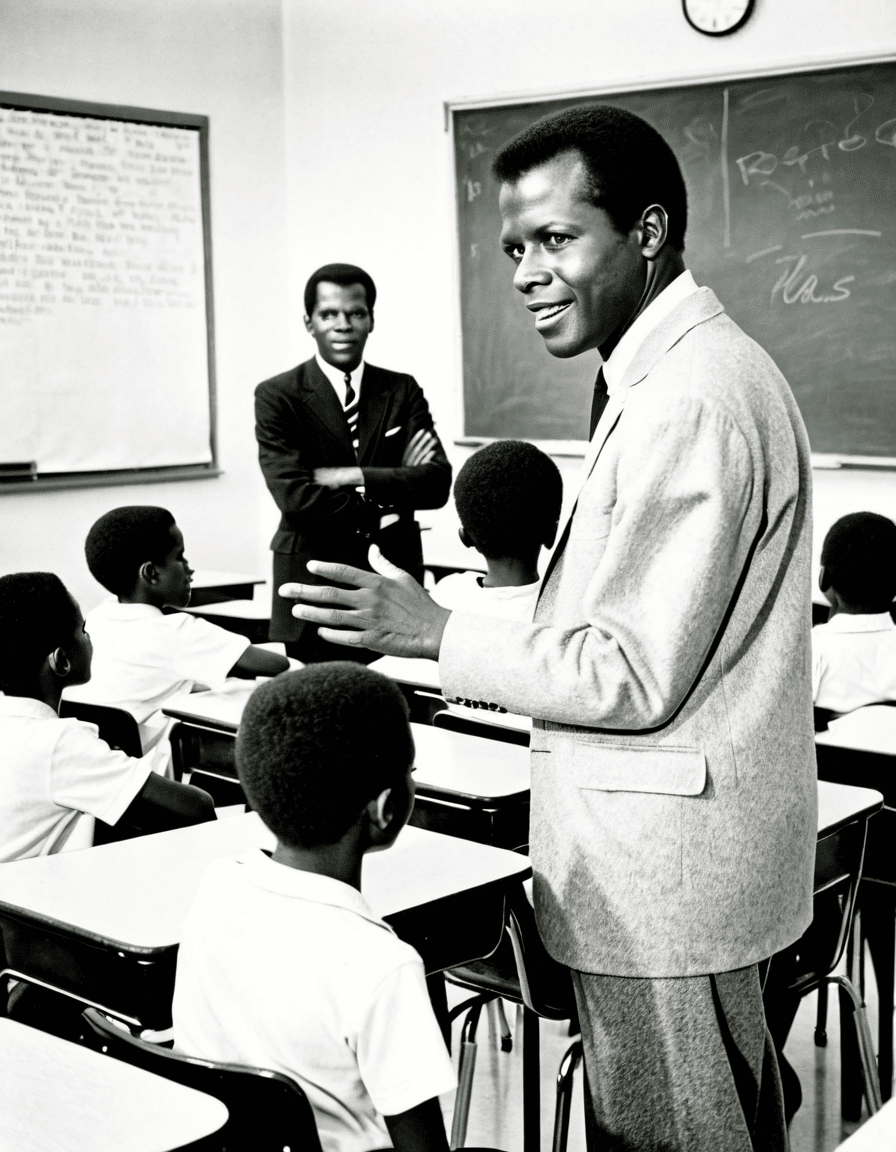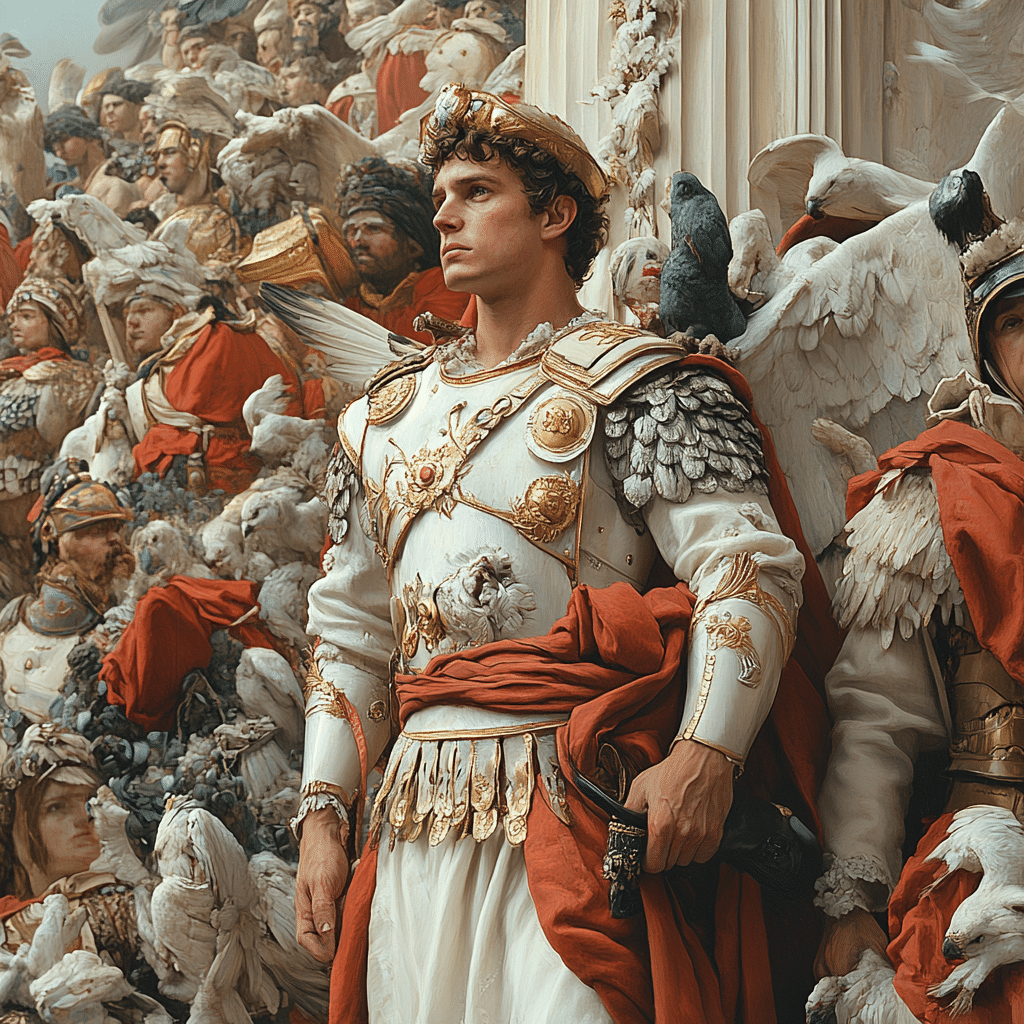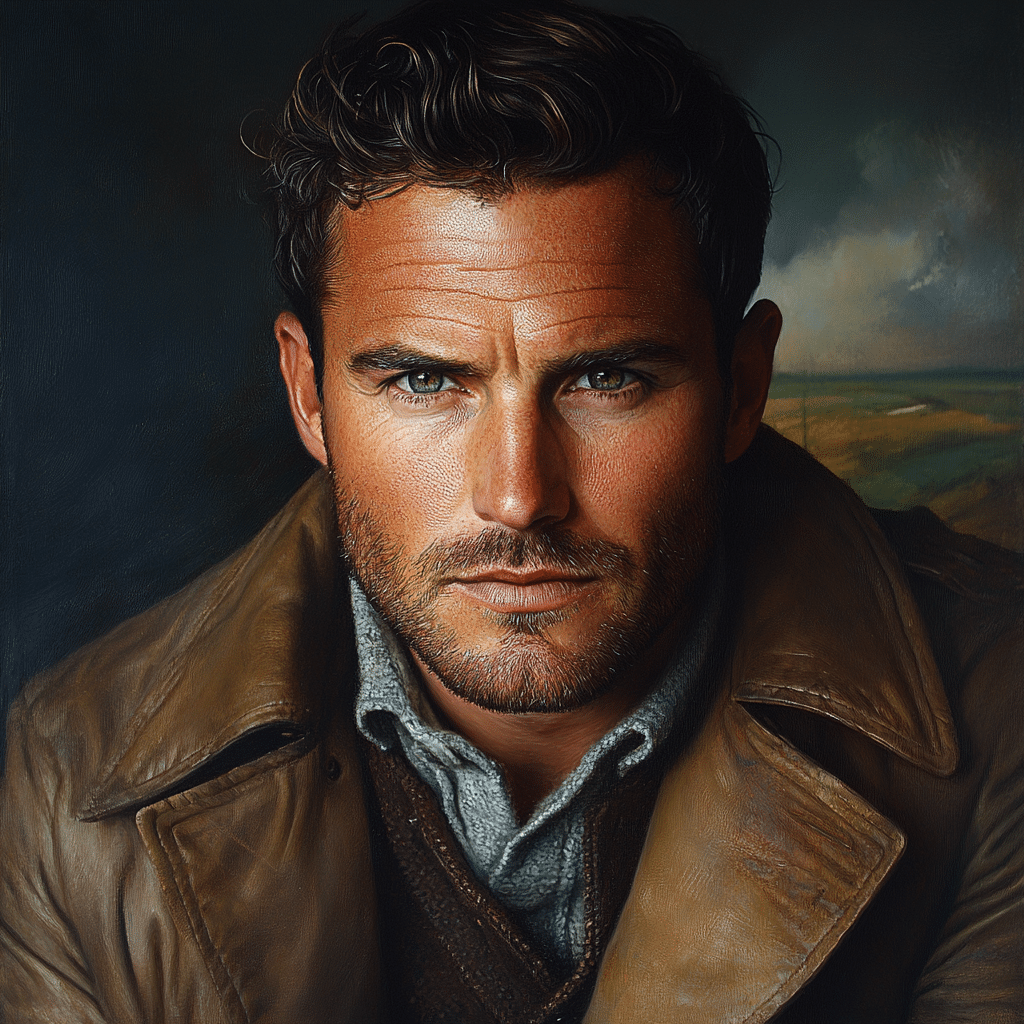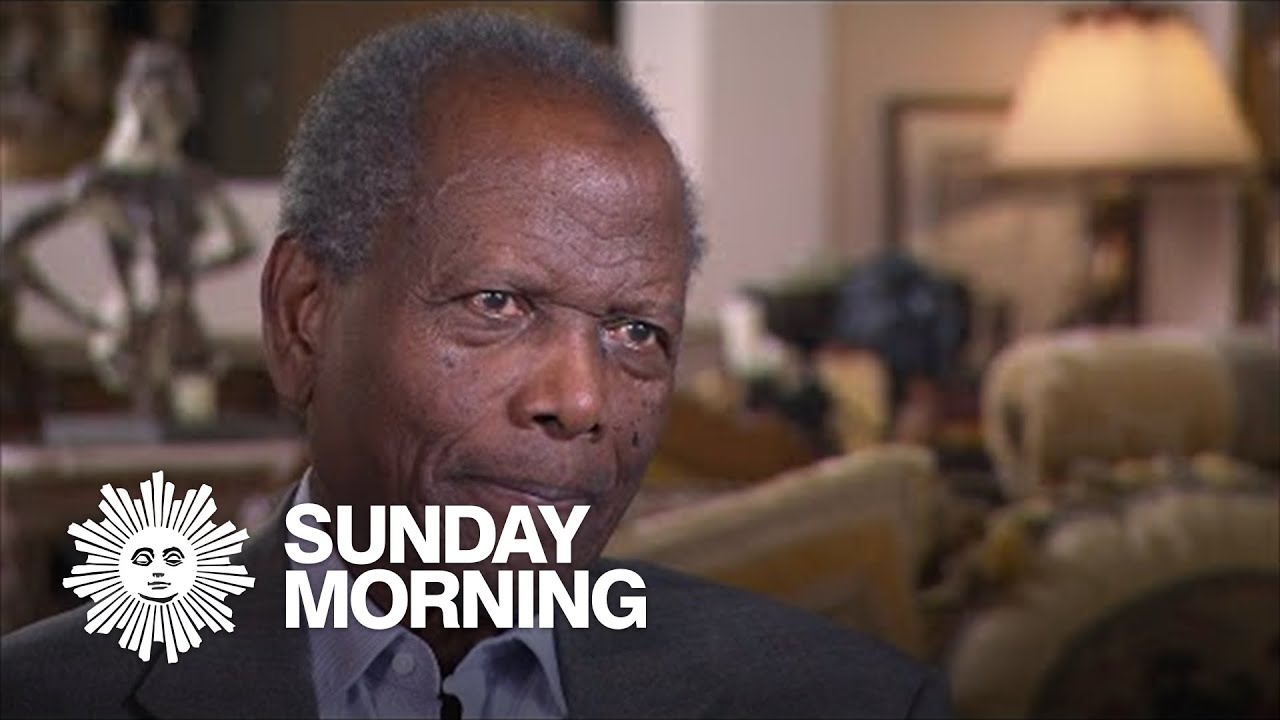
The Enduring Impact of Sidney Poitier on Film and Society
When you think about iconic moments in film history, it’s hard not to mention Sidney Poitier. This man didn’t just break barriers; he bulldozed through them with style and grace. As the first Black actor to snag an Academy Award for Best Actor for his role in “Lilies of the Field” (1963), Sidney transformed the landscape of Hollywood forever. He didn’t merely trailblaze; he helped reshape societal perceptions of race and equality, making waves that are still rippling through cinema today.
Poitier’s influence runs deep across various genres. From his poignant performance in “Guess Who’s Coming to Dinner” (1967) to his heartfelt portrayal in “To Sir, with Love” (1967), he showcased characters that were more than just stereotypes. They were intelligent, dignified, and multi-dimensional, giving audiences a fresh perspective on Black lives in mainstream media. His characters often served as mirrors reflecting the complexities of race relations while encouraging viewers to engage in uncomfortable but necessary conversations.
What’s impressive about Sidney’s influence is how he managed to do this during a time when Hollywood wasn’t exactly known for its inclusivity. It’s like he had a magic wand—or maybe he was just that talented! His performances not only transformed the roles available to Black actors but also nudged society, forcing individuals to question their own prejudices. So while the film industry has changed significantly since his heyday, the lessons and insights Poitier imparted remain crucial today.
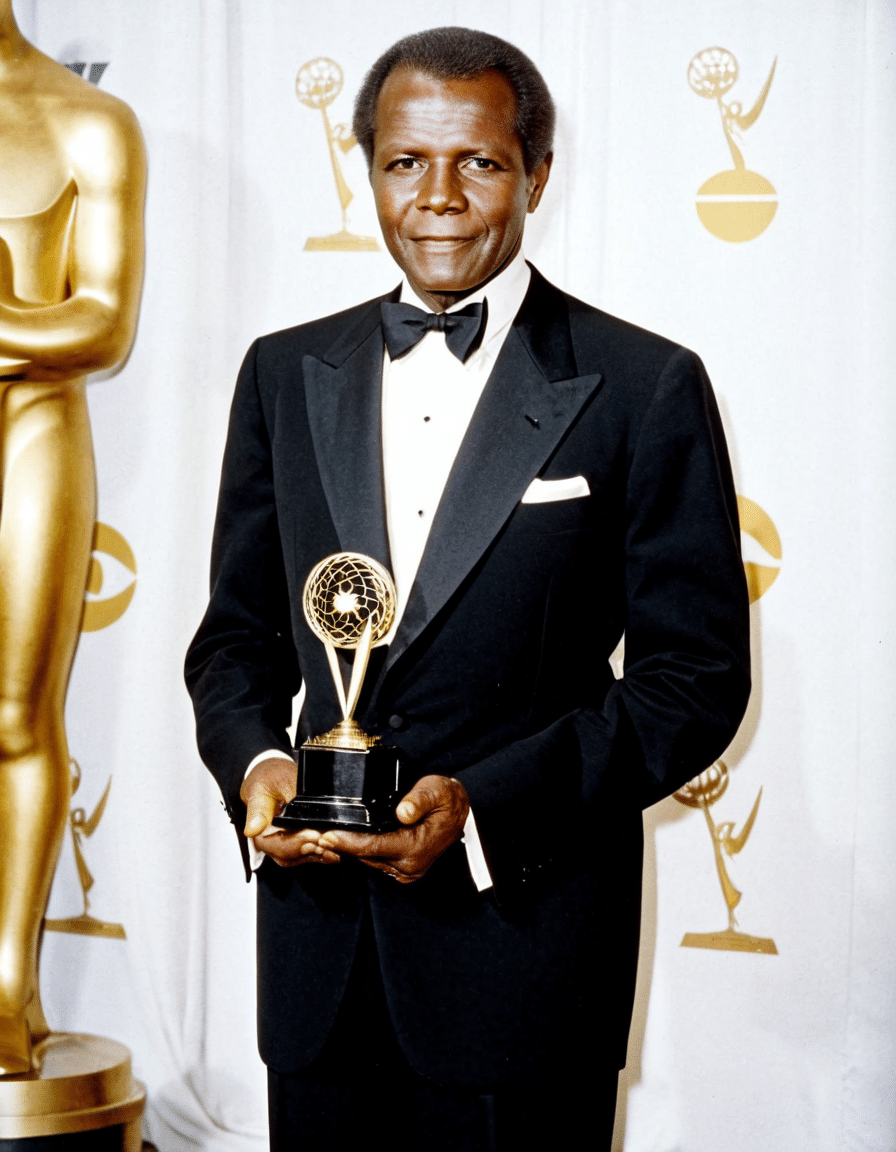
Top 5 Sidney Poitier Performances That Redefined Cinema
1. Lilies of the Field (1963)
Talk about a groundbreaking role! In “Lilies of the Field,” Poitier plays Homer Smith, a traveling handyman who helps a group of nuns build a chapel. His ability to infuse compassion and humility into this character garnered him that coveted Oscar and showcased what acting can truly be about.
2. Guess Who’s Coming to Dinner (1967)
Poitier’s role as Dr. John Prentice is pure gold. This movie sparked heated discussions about race relations, as he plays a Black man deeply in love with a white woman. His calm yet assertive demeanor challenges everyone—from his future in-laws to the audience—inviting them to confront their deep-rooted beliefs.
3. To Sir, with Love (1967)
Sidney shines again as an engineer who becomes a teacher in a tough London school. Poitier’s portrayal captures authority paired with empathy, and this movie remains a cornerstone in discussions about education. It’s a classic that every generation should revisit.
4. The Defiant Ones (1958)
Sharing the screen with Tony Curtis, Poitier plays John “Joker” Jackson, an escaped convict shackled to a white man. This unlikely pairing reveals profound truths about racial tension and interdependence while also delivering heart-pounding drama. Their bond is a commentary on society’s struggles during a tumultuous time.
5. A Raisin in the Sun (1961)
Adapted from Lorraine Hansberry’s iconic play, Poitier delivers a powerful performance as Walter Lee Younger. His portrayal dives deep into African American aspirations and disappointments in a predominantly white society, making it painfully relatable even today.
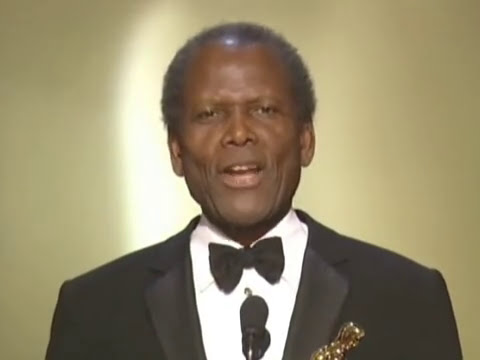
Sidney Poitier and the Art of Storytelling: Parallels with Alain Delon and Jean Paul Gaultier
While Sidney Poitier broke new ground in American cinema, you’ve got figures like French actor Alain Delon and visionary designer Jean Paul Gaultier making their own waves in their fields. It’s like they were all part of a secret club that aimed to reshape cultural norms!
It’s fascinating to see how all three have influenced their respective arenas, showcasing a commitment to challenging societal norms and redefining what success means in the arts.

Sidney Poitier’s Legacy: Shaping Future Generations of Storytellers
Poitier’s legacy is palpable today. His influence doesn’t fade with time; instead, it grows stronger, inspiring scores of artists. If you’ve heard directors like Ava DuVernay and actors such as Denzel Washington talk, you know how much Poitier has shaped their journeys. They recognize that his dignified representation of African American culture set a high bar that today’s artists continue to aim for.
Moreover, numerous scholarship programs aimed at minority students in film schools have sprung up thanks to Sidney’s commitment to mentorship. His understanding that storytelling is a force for social change has inspired a ripple effect that’s changing lives and shaping the industry.
One cannot overlook how Poitier’s contributions have ushered in a new era of storytelling that prioritizes inclusivity and authenticity. His legacy challenges us all—filmmakers, actors, and audiences alike—to dig deeper into the narratives we consume and create.
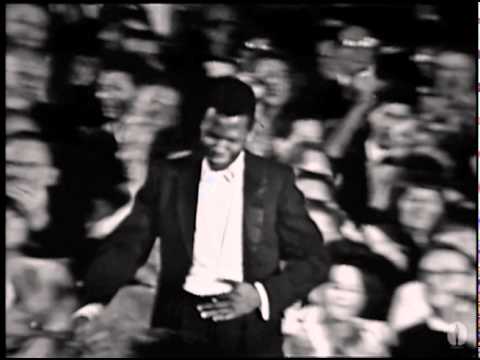
The Lasting Influence of Sidney Poitier in Modern Cinema
As we look to the future of cinema, it’s clear that Sidney Poitier’s work significantly influenced not only films but societal advancements too. He laid down a foundation that today’s actors, filmmakers, and artists are building upon every single day. In a time when representation is more crucial than ever, Poitier stands as a guiding light—a legendary trailblazer whose artistry and integrity transformed not just what we see on screen but also how we discuss culture and identity.
So here’s to Sidney Poitier, a guy who not only made us laugh and cry but also made us think. His enduring influence continues to forge paths for future generations, proving that cinema is indeed a powerful tool for change. And let’s be real—if you’re not inspired by his story, you might want to check your pulse!
Sidney Poitier: The Legendary Trailblazer of Cinema
A Life of Firsts
Sidney Poitier’s impact on cinema isn’t just monumental—it’s historical. Born in 1927 in Miami and raised in the Bahamas, Poitier broke barriers in Hollywood as the first Black actor to win an Academy Award for Best Actor in 1964 for his performance in “Lilies of the Field.” This accolade didn’t just elevate his career; it opened doors for countless actors after him. Interestingly, his legacy parallels other significant shifts in entertainment, similar to how shows like The Golden bachelorette today challenge norms in their fields. Poitier wasn’t just an actor; he was a trailblazer whose performances inspired future generations to dream big.
Overcoming Challenges
While many know him for his remarkable film roles, what truly stands out about Sidney Poitier is his resilience. His journey to stardom included struggles just like artists facing the pressures of modern fame, whether they’re tackling it in the arena of sports, such as those singing the home run derby national anthem, or in sizzling roles like those found in Peliculas Eroticas. Poitier once recounted being discouraged by casting directors, yet he persevered with unmatched determination. With roles in films like “Guess Who’s Coming to Dinner,” he challenged social issues head-on, much like the confrontations seen in acclaimed series such as St. Vincent.
A Multifaceted Legacy
Poitier’s influence extends beyond acting; he directed several films, including the hit “Uptown Saturday Night,” which showcased his versatility. Much like the charm of nostalgia found in classics such as Inspector Gadget, Poitier’s directorial efforts helped pave the way for Black filmmakers in Hollywood. Plus, his friendships with fellow stars, such as Robert Hays, contributed to a supportive network that fostered creativity. In essence, Poitier embodied a spirit of collaboration—a feature that remains vital in today’s entertainment industry.
When reflecting on Sidney Poitier, it’s easy to see how his contributions have shaped cinema just like the masterful storytelling found in films like The . His career is a testament to breaking barriers, serving as a guiding light for many who aspire to thrive in an industry that’s as challenging as it is rewarding. Whether you’re asking How old Is Nle choppa or diving into the Passion Gavilanes cast, the influence of trailblazers like Poitier will always resonate in the heart of cinema.
